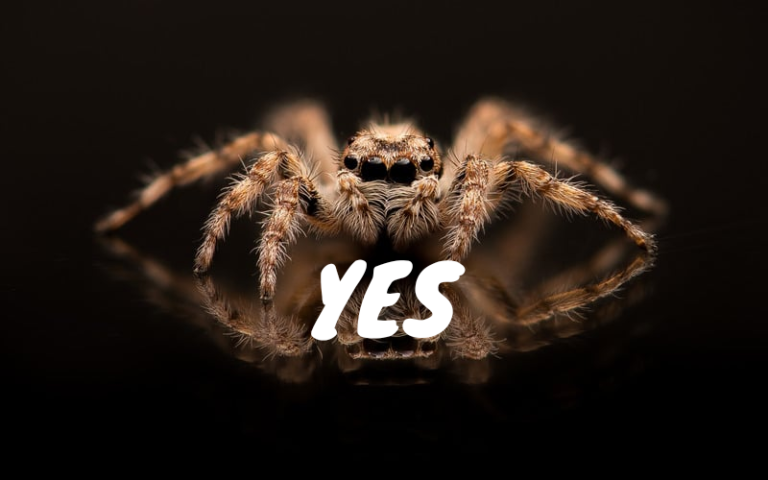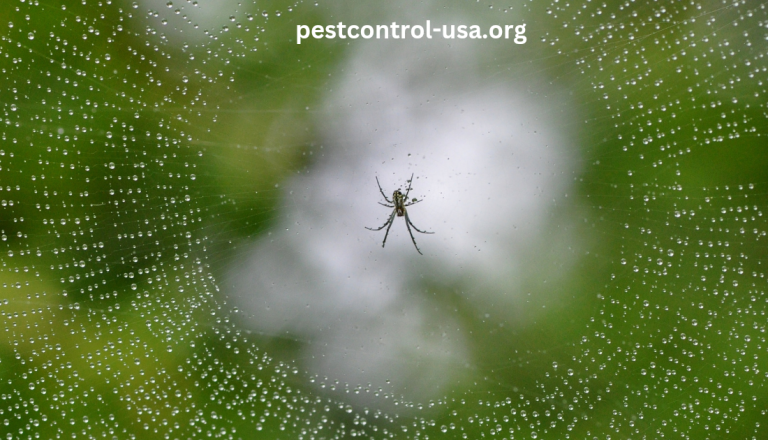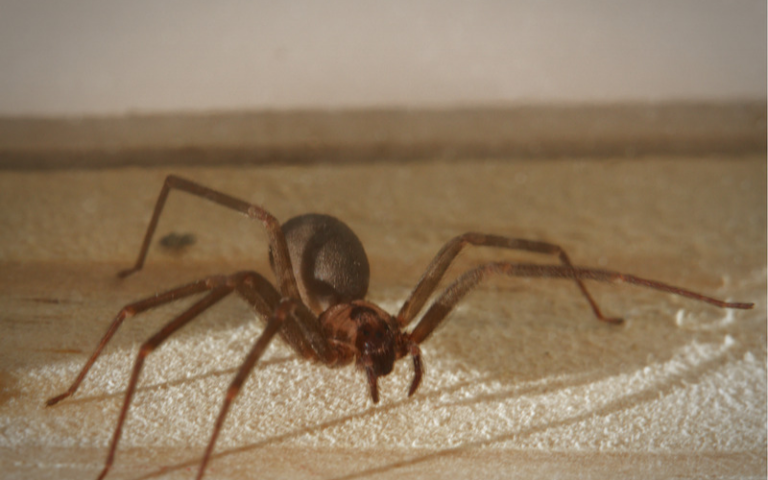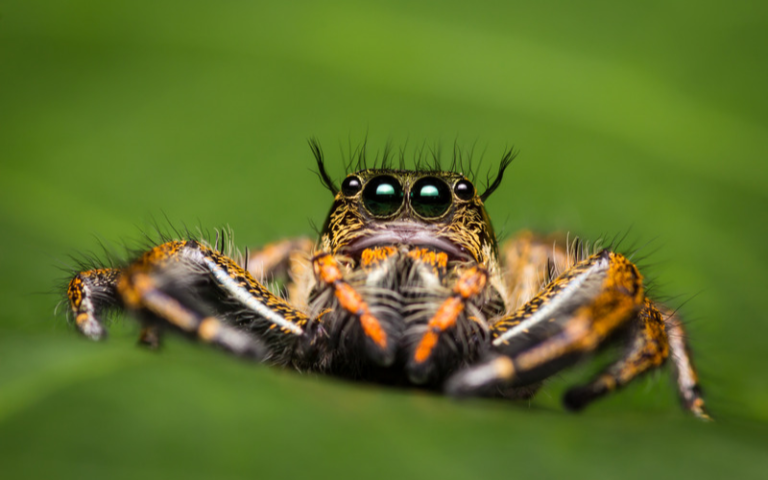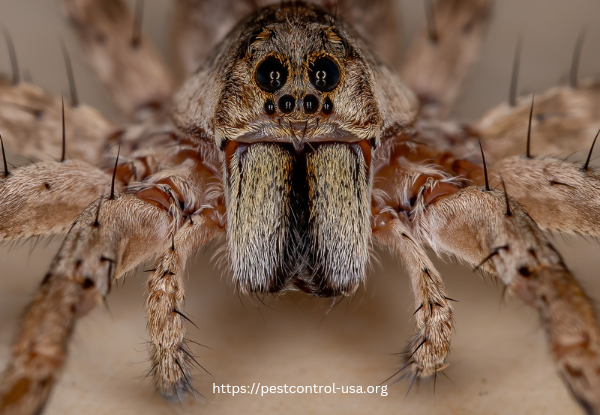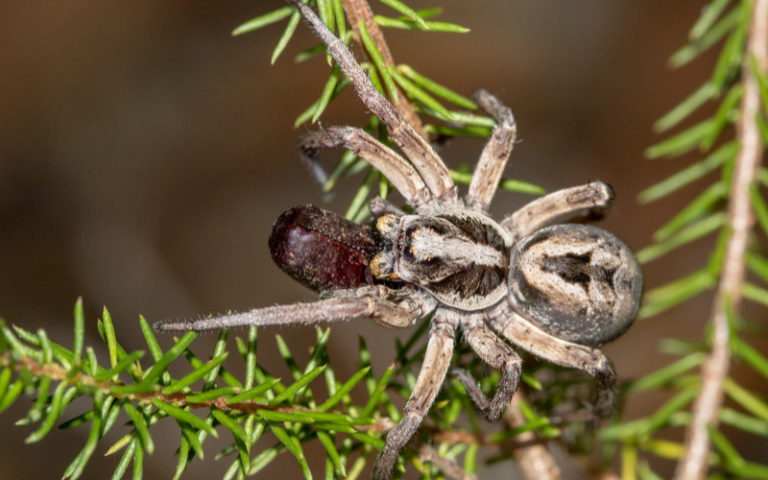Spiders are a common household pest, found in homes all around the world. While some people may appreciate the presence of these eight-legged creatures, others may find them creepy or even dangerous. It’s important to remember that not all spiders are harmful to humans, but some species can be venomous and potentially dangerous if they bite. Additionally, a spider infestation in your home can be unsettling and even unhealthy if spiders are not controlled properly. This is why effective spider pest control is so important. In this guide, we’ll provide tips and techniques for keeping your home spider-free and safe.
Identifying Common Household Spiders
There are many different species of spiders that can be found in homes, and it’s helpful to be able to identify them in order to determine the best course of action for pest control. Some common household spiders include:
- Black widows: These spiders are easily recognizable by their shiny black bodies and the distinctive red hourglass shape on the underside of the female’s abdomen. Black widows are venomous and can be dangerous if they bite, but they are generally non-aggressive and will only bite if they feel threatened.
- Brown recluses: Brown recluses are small, light brown spiders with a violin-shaped marking on their back. They are venomous and can cause serious medical issues if they bite, but they are also non-aggressive and will only bite if they feel threatened.
- House spiders: These are the most common type of spider found in homes. They are usually small and brown, and they spin webs to catch their prey. House spiders are generally harmless to humans.
To determine the presence of a spider infestation, you can look for the following signs:
- Large numbers of spiders: If you start seeing a lot of spiders in your home, it could be a sign of an infestation.
- Webs: Spiders spin webs to catch their prey, so if you start noticing webs in areas where you don’t normally see them, it could be a sign of an infestation.
- Egg sacs: Some spiders lay their eggs in silk sacs, which can be found in corners or hidden areas of your home. If you find egg sacs, it’s a good indication that you have a spider infestation.
- Bites: If you or a family member start experiencing unexplained bites, it could be a sign of a venomous spider infestation. If you suspect this, it’s important to seek medical attention and take steps to control the infestation as soon as possible.
Natural Spider Pest Control Methods
If you prefer to use natural methods to control spider infestations, there are several options available to you. Here are a few natural methods you can try:
- Using Essential Oils to Repel Spiders: Certain essential oils can be effective at repelling spiders. Some options include peppermint, tea tree, and citrus oils. You can create a spider-repellent spray by mixing a few drops of your chosen oil with water in a spray bottle. Then, simply spray the mixture around your home, paying special attention to areas where spiders may be able to enter or hide (e.g. windows, doors, and corners).
- Creating a Spider-Unfriendly Environment: Another natural method for controlling spider infestations is to create an environment that is unfriendly to spiders. Here are a few things you can do to accomplish this:
- Seal cracks and crevices: Spiders can enter your home through small openings, so it’s important to seal any cracks or crevices you find. This will help to prevent spiders from getting inside.
- Remove clutter: Spiders like to hide in cluttered areas, so it’s a good idea to keep your home as clutter-free as possible. This will help to reduce the number of hiding places available to spiders.
- Keep your home clean: Spiders are attracted to dirty, cluttered environments, so keeping your home clean and tidy will help to discourage them from making a home inside.
- Use a dehumidifier: Some spiders are attracted to humid environments, so using a dehumidifier in your home can help to make it less appealing to them.
By using these natural methods, you can help to keep spiders out of your home and maintain a spider-free environment.
Chemical Spider Pest Control Methods
If you decide to use chemical methods to control a spider infestation, there are a variety of products available on the market. Here is an overview of some common chemical pest control products:
- Sprays: Spider sprays are designed to kill spiders on contact. They are typically applied to areas where spiders are known to be present, such as corners, crevices, and around windows and doors.
- Traps: Spider traps are designed to capture spiders so that they can be disposed of. They can be placed in areas where spiders are known to be present, and the spiders will crawl into the trap and get stuck.
- Dusts: Spider dusts are a type of insecticide that can be applied to areas where spiders are known to be present. The dust is toxic to spiders and will kill them when they come into contact with it.
Pros of Using Chemical Pest Control Products:
- Fast-acting: Chemical pest control products are often effective at killing spiders quickly. This can be especially helpful if you have a large infestation and need to get rid of the spiders as soon as possible.
- Easy to use: Many chemical pest control products are easy to apply and do not require any special training or equipment.
Cons of Using Chemical Pest Control Products:
- Potential health risks: Some chemical pest control products can be harmful to humans if they are ingested or inhaled. It’s important to read and follow the instructions on the product label carefully to minimize the risk of exposure.
- Environmental concerns: Some chemical pest control products can be harmful to the environment, so it’s important to consider this when deciding which product to use.
Read: What Chemicals Does Pest Control Use
Safety Considerations When Using Chemical Pest Control Products:
- Follow the instructions on the product label: It’s important to read and follow the instructions on the product label carefully to ensure that you are using the product safely and effectively.
- Wear protective gear: If the product label recommends wearing protective gear, be sure to follow these instructions to minimize the risk of exposure to the chemical.
- Keep the product out of reach of children and pets: Chemical pest control products should be kept out of reach of children and pets to prevent accidental ingestion or exposure.
By following these safety considerations, you can help to ensure that you are using chemical pest control products safely and effectively.
Professional Spider Pest Control Services
If you have a severe spider infestation or are uncomfortable attempting to control the infestation yourself, you may want to consider hiring a professional pest control service. Here are some benefits of hiring a professional:
Expertise: Professional pest control technicians have the training and experience to identify and effectively treat a spider infestation. They can also help to identify the source of the infestation and take steps to prevent future infestations.
Safe and effective treatments: Professional pest control services use safe and effective treatments to control spider infestations. This can help to ensure that the infestation is eliminated effectively and that your family and pets are not at risk.
Convenience: Hiring a professional pest control service can be more convenient than attempting to control the infestation yourself. The technician will take care of the entire process, allowing you to focus on other things.
How Professional Pest Control Services Handle Spider Infestations:
Inspection: The first step in the process is for the technician to inspect your home and identify the type of spider infestation you are dealing with.
Treatment: Based on the results of the inspection, the technician will recommend a treatment plan. This may include the use of chemical or non-chemical methods, such as the application of pesticides, sealing entry points, or creating a spider-unfriendly environment.
Follow-up: After the initial treatment, the technician may recommend follow-up visits to ensure that the infestation is fully eliminated and to take steps to prevent future infestations.
Choosing the Right Pest Control Service for Your Needs:
Research: It’s important to do your research and choose a reputable pest control service with a good track record. Look for a company that is licensed and insured, and read customer reviews to get a sense of the level of service you can expect.
Consider your needs: Think about your specific needs and priorities when choosing a pest control service. If you have pets or young children, for example, you may want to choose a service that uses safer, non-toxic treatments.
Get estimates: It’s a good idea to get estimates from multiple companies to compare prices and services. Be sure to ask about the treatment plan, follow-up visits, and any guarantees offered.
Read: How Much Does an Exterminator Cost?
By following these tips, you can help to ensure that you choose the right pest control service for your needs and get the best value for your money.
Conclusion
In conclusion, effective spider pest control is important for maintaining a safe and healthy home. There are a variety of methods available for controlling spider infestations, including natural methods, chemical products, and professional services. By identifying common household spiders, creating a spider-unfriendly environment, and using safe and effective pest control methods, you can help to keep your home spider-free. It’s also important to regularly inspect your home and take steps to prevent future infestations. By following these tips, you can help to ensure that your home is free of spiders and other pests.


